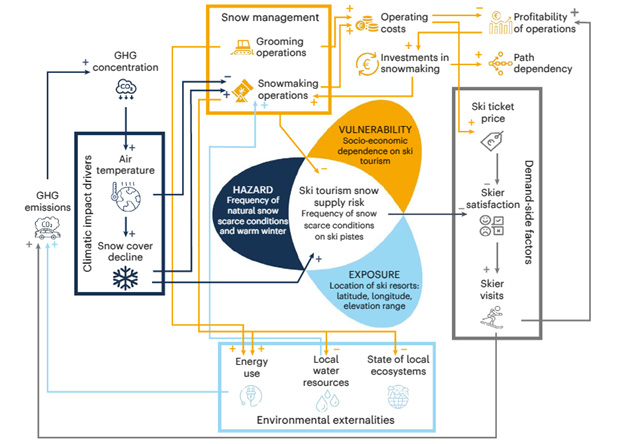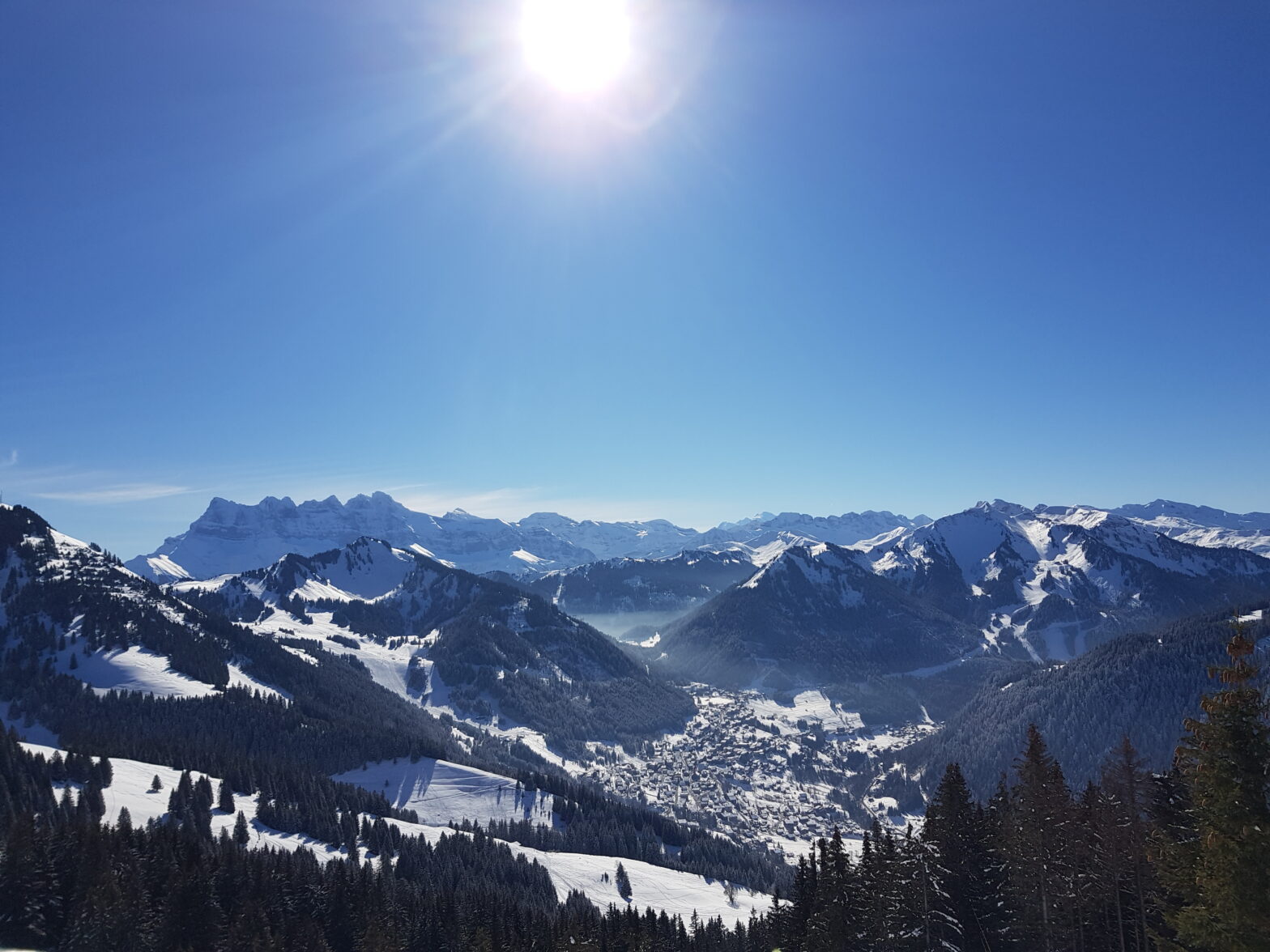A recent study in Nature Climate Change shows that climate change exacerbates snow, water and energy challenges for European ski tourism. Ski tourism is an important part of the economy of mountainous regions in Europe and is highly vulnerable to snow scarcity, which is increasing due to climate change.
At current rates of global warming of 3 °C above pre-industrial levels, 90% of Europe’s ski resorts will eventually face critical shortages of natural snow. Without snowmaking, 98% of the 2,234 ski resorts studied in 28 European countries are likely to be at a very high risk of snow supply shortage under global warming of 4 °C. If global warming is kept to 2 °C, 53% of the ski resorts studied will face snow supply concerns. By contrast, assuming snowmaking provides coverage of 50%, this leads to corresponding proportions of 27% and 71%, but with increasing water and electricity demand (and related carbon footprint) of snowmaking.
SIEPPUR’s scientific partner, Erik Melin Söderström Peak 63 of Sweden noted that:
‘This research study reflects the interconnectedness between climate change, economic and environmental factors that influence snow management operations. We can no longer think in silos and must be innovative in our approach to efficient snow management. The research clearly shows that European ski resorts must rethink their model to minimise negative impact’.

Figure 1: Snow supply risk to ski tourism in the context of climate change. Following the IPCC’s conceptual framework, risk, which we define as the frequency of snow-scarce conditions on ski pistes, results from the combination of hazard, exposure and vulnerability. Changes in hazard are related to temperature rise and snow cover decline.
Snow management is designed to reduce the snow supply risk but is itself influenced by climatic impact drivers. In turn, it induces pressure on environmental externalities, with related greenhouse gas emissions.
The risk also influences demand-side factors through skier satisfaction (influencing profitability of operations) and skier visits (contributing to greenhouse gas emissions through transportation, housing and so on). Profitability of operations is influenced by snow management costs but also influences investments in snowmaking and related path dependencies.
Source: Climate change exacerbates snow-water-energy challenges for European ski tourism | Nature Climate Change

